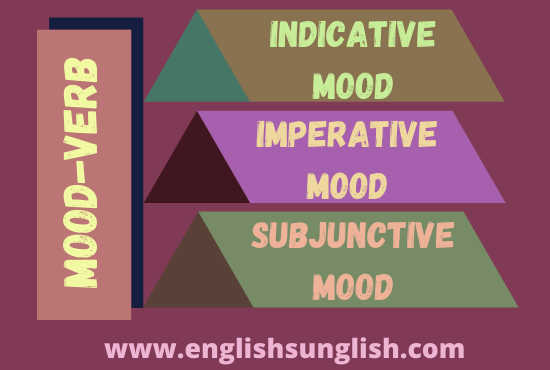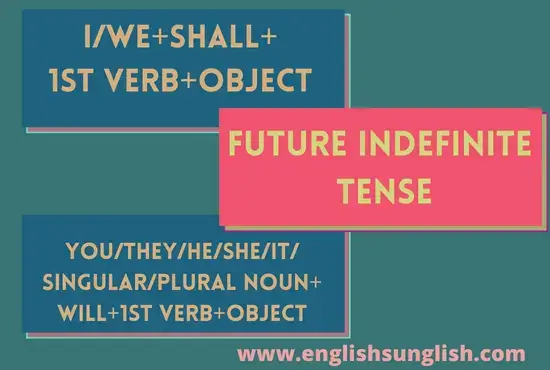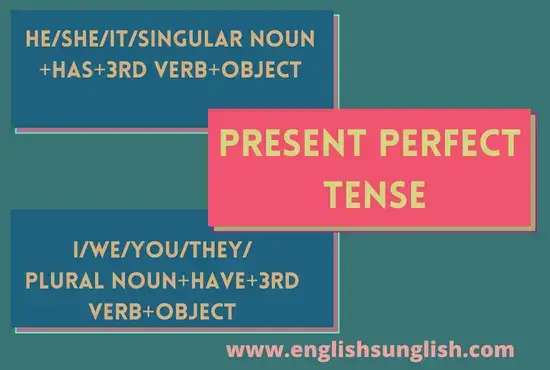indicative, imperative, and subjunctive Mood of Verb|Definition, Use, Examples

The word “mood” has come from the Latin word “modus”, which means “manner”. The different ways in which a verb is used to express actions are called “Moods of the Verb”. Thus, Mood can be referred to as an attitude that a verb conveys in a sentence. Moods of verbs express the presence of some action/ state in a sentence. For example, a verb may be used to express a statement, question, command, supposition, etc. All these actions are primarily divided into 3-Moods of Verb in English.
With the change in the mood of the verb, the tone of the sentence is also changed.
Indicative Mood of Verb
Indicative Mood is the most used mood of the verb, and it is used to indicate “facts, statements, opinions, questions”. Thus, Indicative Mood is used to make statemen express opinions ask questions, to express facts. Indicative Mood can be used in “Present, Past, and Future” tenses. All types of tenses (Indefinite, Continuous, Per, feet, and Continuous Perfect) usually have Indicative Mood verbs to express an action, because all these tenses have statements/declarations. The Indicative Mood of the Verbs includes the following actions:
Indicative Mood of Verb is used to express the Statements or Declarations
Verbs that are used to make statements or declarations about a fact, is come under the domain of Indicative Mood. Because such Veare ribs are only used to indicate some fact about some action/state. For example:
- I write to my brother every week.
- He walks every day after dinner.
- Rama goes to school daily.
- We are taught Arithmetic.
- He writes legibly.
- Napoleon died at St. Helena.
- The child is alive.
- Rain falls quite heavily month of August every year.
- Lots of flowers will blossom tomorrow.
- John sings every Sunday.
Indicative Mood of Verb is used to express the Opinions
Verbs that are used to express some opinion, are related to Indicative mood because they are indicating some opinion about some fact/action/state. For example:
- Lots of rain fell yesterday.
- That s beautiful scenery.
- Those coconut cookies taste delicious.
- We believe that he is a very industrious boy.
- I cannot speak Spanish.
Indicative Mood of Verb is used to ask the Questions
Verbs that are used to make questions are also cal to be in Indicative Mood. Because they indicate a question about something. For example:
- Who wrote that letter?
- Does he believe in the benefits of getting up early in the morning?
- Have you found your book?
- Are you well?
- Is that a wheel?
- Are they hiking?
- Do you hear a song?
Indicative Mood of Verb is used to express the Suppositions as facts
Verbs that are used to make such suppositions that are taken as facts are also called to be in Indicative Mood.
- If I am to be a beggar, it shall never make me a rascal.
- If it rains, I shall stay at home.
- If my friend wants it, I shall give it to him.
- If he is the ringleader, he deserves to be punished.
- If I study hard, I will do well on the test.
Imperative Mood of Verb
Imperative Mood can also be called “bossy mood” because it is often used to give a command to others. The Verbs of the Imperative Moods are used to command, exhort, or pray to the second person (you). Usually, the subject is implied rather than stated. However, when used for 1st and 3rd persons, “let” must express command or exhortation. The Imperative Mood of a Verb is used to express the following actions:
Imperative Mood of Verb is used to express the Commands
When a verb is used to make a command, then it is called to be in an Imperative Mood. Because it gives an order to someone. For example:
- Wait there!
- Come here!
- Sit down!
- Please take a number!
- Open your bonk on page 8!
- Drive the car!
- Sit in her seat!
Imperative Mood of Verb is used to express the Exhortations
A verb that is used to make an exhortation, is said to be in an Imperative Mood. Because it urges something like an order or command. For example:
- Be steady.
- Get ready.
- Be careful.
- Take care of your health.
- Try to do better.
- Work harder.
- Try your luck again.
- Be good with everyone in all circumstances.
- Beware of enemies from within.
Imperative Mood of Verb is used to express the Entreaties or Prayers
Verbs that are used to express an entreaty or prayer, are also come under the domain of Imperative Mood.
- Have mercy upon us!
- Give us this day our daily brePityy on us!
- God bless you!
- Be patient!
Subjunctive Mood of Verb
The Subjunctive Mood is rarely in use in today’s English and is only used in some special kinds of sentences when the purpose is to add some extra wish or for the longing for something to be true that is usually not. They are mostly used in “contrary-to-fact/ hypothetical statements”. It means that Subjunctive Mood is used to express doubt or something that is not factual, but probable. Subjunctive Mood of Verb can be used in Present and Past tenses.
Verbs like “ask, command, demand, insist, order, recommend, suggest, wish”, come under the domain of Subjunctive Mood.
Adjectives like “crucial, essential, important, imperative, necessary” often attract the subjunctive mood.
So, one must remember to use “Indicative Mood“, when something is likely to happen, and “Subjunctive Mood” when something is hypothetical or contrary to fact. Verbs of the Subjunctive Mood are primarily used in the Present and Past tense.
Present Subjunctive Mood
Present Subjunctive Mood in Present Tense is used to denote:
Present Subjunctive Mood of Verb is used to express the Traditional Phrases that express a wish or hope
Verbs that are used in some phrases to indicate a wish or hope are said to be in Subjunctive Mood.
- God bless you!
- God save the King!
- Heaven help us!
Present Subjunctive Mood of Verb is used to express the Noun clause that is dependent on Verb
Subjunctive Mood can also be used in Present Sense to express a noun that is dependent on the verb to express desire, intention, or resolution.
- I move that Mr. Gupta be appointed Chairman.
- It is suggested that a ring road be built to relieve the congestion.
- It is suggested that the photographer keeps the background uncluttered.
- I suggest that he is paying attention.
- The teacher suggested that John takes another course in Physics.
- I suggest that David was less formal.
- I propose that he be present at the meeting.
- I propose that Harry be asked to attend the funeral of his uncle.
- I propose that Henri be asked to complete
- We recommended that the subscription be increased to ten rupees.
Past Subjunctive Mood
The Subjunctive Mood in Past Tense is used for the following purposes:
- After the Word “Wish“
- After the Word “if“
- After the Word “as if/as though“
- After the Word “it is time“
- After the Word “would rather“
Past Subjunctive Mood is used after the word “wish”
The Subjunctive Mood to indicate Past tense is used after the word “wish” when the word “wish” indicates such a condition that is unreal and contrary to fact. For example:
- I wish I knew his name.
- I wish I were a millionaire.
- She wishes the car belonged to you.
- I wish it were real.
- I wish I were taller.
- I wish my brother was with me during my exams.
- I wish I was a champion football player.
- I wish that Bob was more tactful and considerate.
Past Subjunctive Mood is used after the word “if”
The Subjunctive Mood is used to express the action in the Past-sense after the word “if”, when “if” is used to express some type of improbability or unreality in the present. For example:
- If I were you I should not do that.
- If we started now we would be in time.
- If I had been king, you would have been queen.
- If he had worked, he could have earned high wages.
- If I were David, I would drive the car.
- If it were me, I would go.
- If I were king, you would be queen.
- If I were taller, I would play basketball.
- If he worked, he could earn high wages.
- If John was elected tomorrow, we would all celebrate.
Past Subjunctive Mood is used after the word “as if/ as though”
The Subjunctive Mood is also used to express the action in the Past after the word “as if/ as though”, and when “as if/ as though” is used to express unreality or improbability. For example:
- He orders me about as if I were his wife.
- He walks as though he were drunk.
- He complained to her as if she was in charge.
- He looks as if he was going to faint.
- He looked as if he were ill.
Past Subjunctive Mood is used after the phrase “it is time”
The Subjunctive Mood is also used after the phrase “it is time”, to indicate that some action is very late. For example:
- It is time we started.
- It is time you went to bed.
- It is high time I bought a new pair of shoes.
- It is time to say goodbye.
- It is time we left.
Past Subjunctive Mood is used after “would rather”
Verbs of the Subjunctive Mood are also used after “would that” to show a preference for one thing over another. “Would rather” can be used in the past tense but the meaning is always present. For example:
- I would rather get by air.
- They would rather you paid them by cheque.
- I would rather cook than wash the dishes.
- We would rather stay at home today.
- I would rather go to the cinema on Friday.
- If this is reality, I would rather be dreaming.


